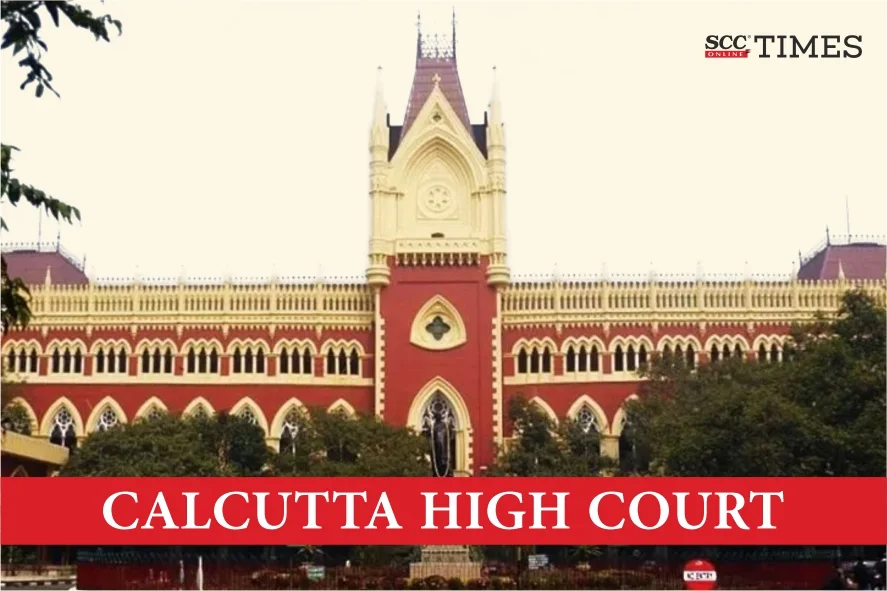Calcutta High Court: An appeal was filed by Secretary, Alipore Bar Association for consideration whether election to the Bar Association (Alipore Bar Association here), is amenable to the writ jurisdiction of this High Court under Article 226 of the Constitution of India. A division bench of Ranjan Dash and Sarathi Sen, JJ., held that Alipore Bar Association being not a state “other authority” or “agency or instrumentality” of the state within Article 12 and “authority or person” discharging public function within the meaning of Article 226, writ against Alipore Bar Association that too in the matter of election to the Bar Association is not maintainable.
The case revolves around the Alipore Bar Association and the legal dispute arising from its election process. The Alipore Bar Association, like many other Bar Associations, conducts elections to select its office bearers. These elections are crucial for the functioning and representation of the legal fraternity in the Alipore region. The dispute leading to the case filing stemmed from the way the elections to the Alipore Bar Association were conducted due to alleged irregularities and malpractices in the election process, prompting concerned parties to seek legal recourse. The petitioners, dissatisfied with the conduct of the elections, approached the court seeking intervention and relief.
Counsel for the petitioners argued that the irregularities in the election process warranted judicial intervention to ensure fairness and transparency. They contended that the Alipore Bar Association, as a body governing legal professionals, should be held accountable for any deviations from democratic norms in its election procedures. Conversely, the respondents, representing the Alipore Bar Association, presented arguments defending the integrity of the election process. They asserted that the Association had followed established procedures and guidelines in conducting the elections, and any disputes should be resolved internally rather than through judicial intervention.
The Court meticulously analyzed the submissions made by both parties, delving into legal precedents and constitutional provisions relevant to the case. It examined previous judgments, including those of the Supreme Court, to determine the scope of its jurisdiction in matters concerning Bar Association elections and observed that while there were instances where judicial intervention in such matters was justified, it should be exercised sparingly and only in exceptional circumstances. It emphasized the importance of upholding democratic principles and ensuring the integrity of the election process while also respecting the autonomy of Bar Associations.
The Court remarked that “the Alipore Bar Association being not a state “other authority” or “agency or instrumentality” of the state within the meaning of Article 12 and “authority or person” discharging public function within the meaning of Article 226, writ against Alipore Bar Association that too in the matter of election to the Bar Association is not maintainable. In other words, Alipore Bar Association is not amenable to the writ jurisdiction of this Court. We would like to clarify here that a Bar Association can be made party in a writ petition along with other statutory authority/authorities discharging statutory/sovereign function for the limited purpose that the order passed under writ jurisdiction shall be binding on that Bar Association.”
The Court further remarked that “The writ petition having held to be not maintainable all the orders passed in the writ petition and the interim order passed in this appeal become non-est in the eye of law. The election having been held as per schedule in the notice dated 27-02-2024, the result of the election be published by the Election Officer forthwith. Any party aggrieved by result of the election or any party desirous of raising an “election dispute”, if so advised, may move the common law forum i.e. the competent Civil Court for redressal of his/their grievance within the time limited by law.”
Thus, the Court held that while the writ petition against the Alipore Bar Association was not entirely without merit, the allegations raised did not warrant immediate judicial intervention stating non-interference in the internal affairs of Bar Associations unless egregious violations of democratic norms were established.
[Secretary, Alipore Bar Association v. Subir Sengupta, 2024 SCC OnLine Cal 3597, decided on 10-04-2024]
Advocates who appeared in this case :
For the Appellant: Mr. Joydip Kar, Sr. Adv. Mr. Sankha Biswas, Adv.
For the Respondent 1: Mr. Subir Sanyal, Adv. Mr. Sukanta Chakraborty, Adv. Mr. Srijib Chakraborty, Adv. Mr. Lokenath Chatterjee, Adv. Mr. Sukanta Ghosh, Adv. Mr. Rivu Dutta, Adv. Mr. Chandan Kr. Saha, Adv. Mr. Pradip Kr. Mondal, Adv. Mr. Sankarshan Majumder, Adv. Mr. Arghya Chatterjee, Adv. Ms. Falguni bandhyopadhya, Adv.
For the respondent 10: Mr. Debabrata Saha Roy, Adv. Mr. Neil Basu, Adv.
For the applicant (CAN 5 & 6 of 2024)/: Mr. Abhratosh Majumdar, Sr. Adv. Intervenor Mr. Sayan Sinha, Adv. Mr. Kaushyeo Roy, Adv. Mr. Nilanjan Bhattacharya, Adv.








